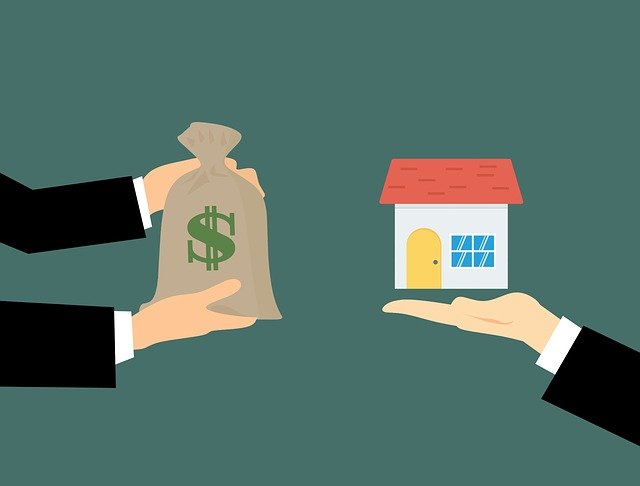The Truth About Eviction Records: How Long Do They Really Stay on Your Record?
Eviction is a nightmare that nobody wants to face. It’s an emotionally and financially draining experience that can have long-lasting effects on your life. One of the most frustrating aspects of an eviction is the fact that it stays on your record for years, which can make it incredibly difficult to secure a new home or even a job. But, how long do eviction records really stay on your record? The answer to this question isn’t as straightforward as you might think. There are several factors that can impact how long an eviction record stays on your record, including state laws, the type of eviction, and the outcome of the case. In this article, we’ll explore the truth about eviction records and provide you with the information you need to know to move forward after an eviction. So, let’s dive in and get to the bottom of this important topic.
How eviction records can impact your housing search
When you’re looking for a new place to rent, your rental history is an important factor that landlords consider. Landlords typically conduct background checks on potential tenants, which include a review of their rental history. If you have an eviction record on your rental history, it can make it difficult to find a new place to live. Landlords may view an eviction record as a red flag and may be hesitant to rent to you. Additionally, some landlords may require a higher security deposit or charge higher rent if you have an eviction record.
The difference between an eviction record and a court judgment
It’s important to understand the difference between an eviction record and a court judgment. An eviction record is a record of the eviction process, which includes the filing of an eviction notice and the final outcome of the case. A court judgment is a formal decision made by a judge in a legal case. In the context of an eviction, a court judgment may be issued if the tenant owes unpaid rent or damages to the property. Both eviction records and court judgments can impact your credit score and rental history, but they are not the same thing.
How long do eviction records stay on your record?
The length of time that an eviction record stays on your record can vary depending on several factors. Generally, an eviction record remains on your record for at least seven years. However, this can vary depending on state laws and the type of eviction. In some states, eviction records may only be held for three years, while in others, they may be held indefinitely. Additionally, if the eviction record is expunged or removed from your record, it may not appear on future background checks.
The impact of state laws on eviction records
State laws can have a significant impact on eviction records. Some states have laws that limit the amount of time that an eviction record can be held. For example, in California, eviction records can only be held for seven years from the date of filing. Additionally, some states have laws that require landlords to provide tenants with notice before filing an eviction. This notice can give tenants the opportunity to address the issue and avoid an eviction.
How to get a copy of your eviction record
If you’re not sure if you have an eviction record or want to review your rental history, you can request a copy of your record from a tenant screening agency. Tenant screening agencies collect rental history information and provide it to landlords during the tenant screening process. You can request a copy of your rental history from these agencies and review it for accuracy. If you find an error on your rental history, you can dispute it and request that it be corrected.
How to remove an eviction record from your record
Removing an eviction record from your record can be challenging, but it’s not impossible. The first step is to review your rental history and ensure that the information is accurate. If you find an error, you can dispute it with the tenant screening agency. Additionally, some states have laws that allow tenants to have eviction records expunged from their record after a certain amount of time has passed. If you’re eligible for expungement, you can file a petition with the court to have the record removed.
Tips for renting with an eviction record
If you have an eviction record on your rental history, there are still steps you can take to improve your chances of finding a new place to live. One important step is to be upfront and honest with potential landlords about your rental history. Explain the circumstances of the eviction and what steps you’ve taken to address any issues. Additionally, you can offer to provide references from previous landlords or offer a higher security deposit to show that you’re serious about being a responsible tenant.
The importance of transparency in the rental process
Transparency is key when it comes to the rental process. Landlords want to know that they can trust their tenants to pay rent on time and take care of their property. By being upfront and honest about your rental history, you can build trust with potential landlords and increase your chances of finding a new place to live. Additionally, if you’re able to address any issues that led to the eviction, you can demonstrate that you’re committed to being a responsible tenant.
Eviction records can have long-lasting consequences for tenants. They can impact your ability to find new housing, and even affect your employment prospects. However, by understanding how eviction records work and taking steps to address any issues, you can improve your chances of finding a new place to live. Remember to be upfront and honest with potential landlords, and take steps to ensure that your rental history is accurate. With these tips in mind, you can move forward after an eviction and find a new place to call home.
If you are having an eviction on your record can hamper the ability to rent again.
How long does an eviction stay on your record/credit history?
An eviction will stay on the credit report for a minimum of 7 years.
If a judge removes it from your record, it can come off soon. If you claim unpaid rent as part of a Chapter seven bankruptcy, that stays on your record for ten years. When a landlord needs to evict a tenant, they must first give the tenant an eviction notice explaining the reason for the eviction. What the tenant can do in response and how long, they have to respond. For most evictions, the response period is 30-60 days.
Fast response from the tenant can delay the eviction or even prevent it if the grievances of the landlord are addressed. Evictions may affect your credit score as well as your ability to rent, but there’re ways for improving your chances of renting after an eviction.
Dear Masters Credit Consultants,
I was evicted several years ago and saw this on my credit report. Now I don’t see it anymore but know this used to be there at one point in time- do you think removing an eviction will also remove the rental history too? How long does it take for something like that happen with just mortgage lenders or banks checking things out when applying for loans/credit cards etc.?– Janelle S.
Dear Janelle,
Eviction records will not show up on your credit report, but any collection accounts for payments could remain active and affect you as long as they were still reported to the bureaus within seven years of their original delinquency date. If there is no evidence that this has been removed from your recent copy of a transcript then it may be an older account which was simply purged due its age (which would make sense). However keep in mind: since evictions often happen at much earlier dates than collections do –– meaning if we don’t know what happened during those periods where someone paid or wasn’t able too; scrubbing such records isn’t always enough because tenants might have moved out without reporting those changes first!
How Does an Eviction Affect My Credit?
Evictions may result in negative marks that bring down your credit score. If you did not pay the full amount due, your landlord may bring you to court. Once you are sued for unpaid rent as well as the landlord wins the case, you will have a civil judgment against you. The civil judgment is important for your credit history. A civil judgment is a serious negative mark and stays on your credit report usually up to 7 years, even if you have paid off the amount. A potential employer or landlord can review the credit reports and learn about your civil judgment.
How To Remove an Eviction from My Public Record?
You can remove the eviction from public records by petitioning the court, winning the case, or disputing a wrongly reported eviction. As a credit repair company, we can do the work for you! Be sure to contact us for a free credit repair analysis to get started.
While the procedure is more difficult, it isn’t impossible.
- Petition the court: In the county where the case was filed, you can make petition the court to have the eviction removed from your record.
- Win your case: If the landlord served you an eviction notice without a legal and valid basis, prove that. A judge is more probably to rule in your favor if you demonstrate, the eviction was unfounded and not the result of you breaking your lease.
- Prove that you did not violate the lease: Make it evident you did not break the terms of your lease. For example, prove, you paid your rent as well as that you left the property in a satisfactory situation. Provide evidence when possible. Documentation like cleared rent checks and photos can support your case.
- Make sure proper processes are followed: Keep an eye on the landlord’s procedure of carrying out the eviction. Laws vary by state, but there is a specific process a landlord must follow when filing the eviction and serving the eviction notice to you.
Make yourself familiar with laws governing eviction suits of your state. Make sure to document how your landlord fails to abide by the required legal procedure.

What’s the BEST Credit Repair Company that can REMOVE an Eviction from my Credit Report?
The BEST of the best is of course Masters Credit Consultants. They have a track record of helping countless people remove an eviction from their credit report. They will even give you a free consultation to see what else is on your credit file and free advice on how to remove it. You can also purchase to have them do all the heavy lifting for you. All you have to do after that is simply enjoy your new good credit.

How you handle an eviction is important
If you receive an eviction notice, read it thoroughly and be sure you understand it. If you’re yet not clear as to why your landlord gave you an eviction notice, ask for clarification. If you don’t feel comfortable talking to the landlord, consider consulting an attorney. It’s essential that you understand why you were given the eviction notice so that you can take steps to correct the issue, if possible. Sometimes you can do everything in your power for stopping an eviction but you get evicted anyway. You do have a few options the next time you try to rent a property.
Explain the eviction
Most landlords don’t automatically allow an eviction dissuade them from renting to you, so be honest. When applying to rent a home and apartment, allow the landlord to know of your eviction and why it happened, particularly if you tried unsuccessfully to prevent it. The worst time for a landlord to determine an eviction is after she has run a credit history.
Get a co-signer
Getting a co-signer for the lease is a perfect way to rent with an eviction on your record. If you fail to pay your rent as well as damage the property while living there, the co-signer is responsible along with you. Find somebody you can trust and who has decent credit as a co-signer.
Offer to pay more money
You can offer to pay extra money to the landlord to rent to you. This can include a more month’s rent, furthermore, to the first month’s rent as well as a security deposit, which is commonly needed for renters. You can offer to pay a high-security deposit, particularly if you were evicted to damage the property from which you were evicted.

How to Remove a Civil Judgment from Your Credit Report?
After you have successfully legally removed your eviction from your public record, you’ll yet need to inform the credit bureaus. The credit bureaus won’t remove the civil judgment from your credit report automatically after you have removed it from your public record ensure you notify them.
You need to take the following steps to eliminate the civil judgment from your credit report:
Obtain documentation: If you have won the case, gather all the evidence, the court removed the eviction from your public record. If you reached an agreement with the landlord and the eviction case was dismissed, then get proof and show it to the credit bureaus.
Find other inaccuracies in your credit report: While you are in the procedure of removing the eviction, now is an ideal time to check for other misrepresented info on your credit report. Look for incorrect dates and amounts, or debt that yet shows a balance when it is been paid off, and submit more disputes.
Send a dispute to the major credit bureaus: For every bureau that lists your civil judgment, you will need to send in a separate credit dispute with documentation.
Follow up: Removing a civil judgment or other unfair, negative items from your credit report takes time & diligence. Make sure to follow any instructions given by the credit bureau. Send follow-up communication if you do not hear back from them within 30 to 60 days.
Thank you for reading this article, if you’re in need of more in-depth answers for your unique situation – we’re here to help!

Do you need credit repair? We are here to help!
Hopefully, that answered, “How long does an eviction stay on my credit report.” or “How long does an eviction stay on your record?”We at YMA Wealth Management Group are a team of business experts located in South Carolina. Credit repair is an in-demand service we offer and the branch is called Masters Credit Consultants – and we’re here to help you now! Pick up your phone and give us a call now: 1-800-381-9206

